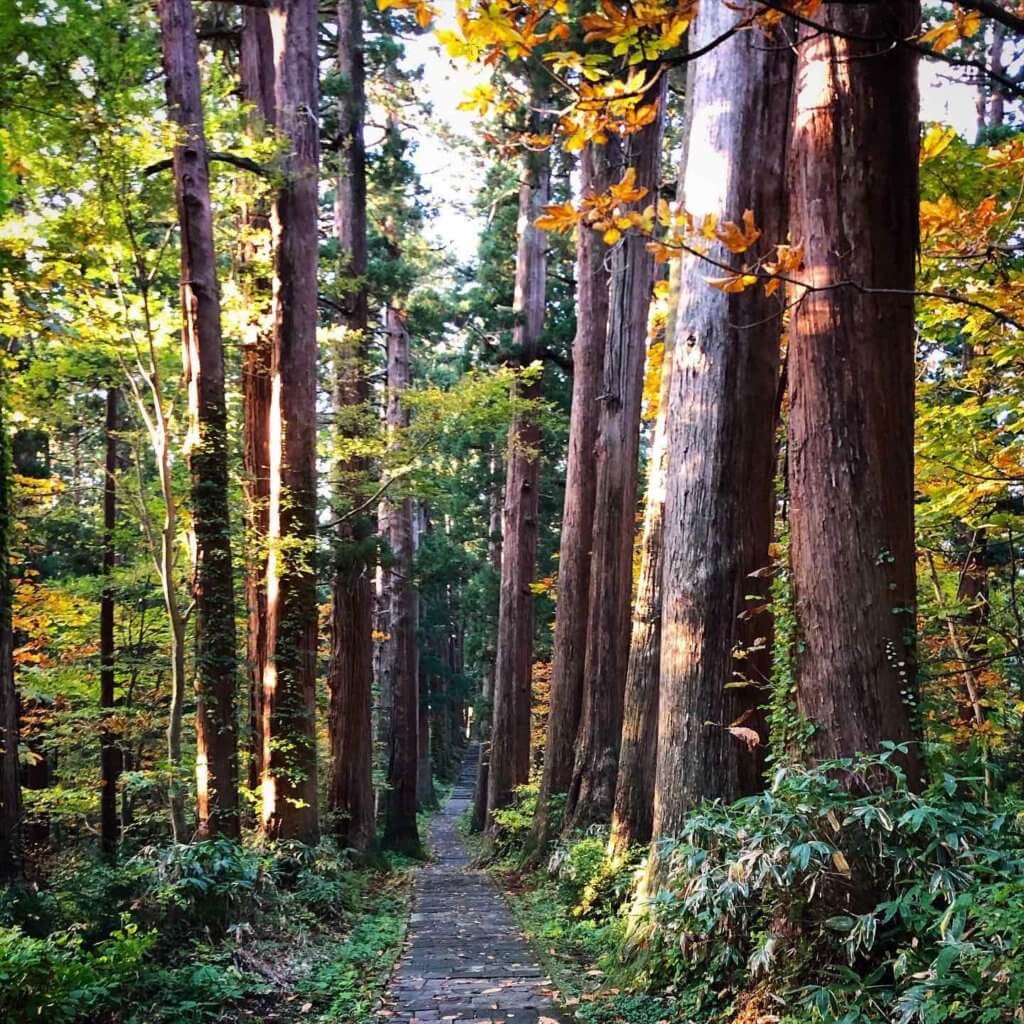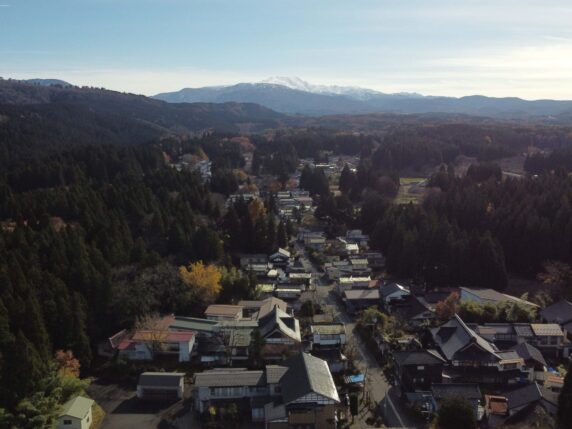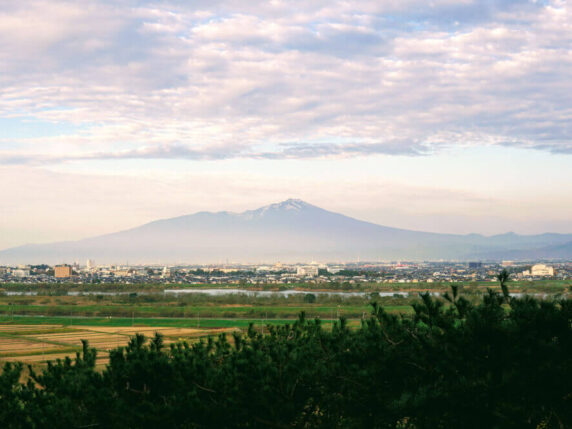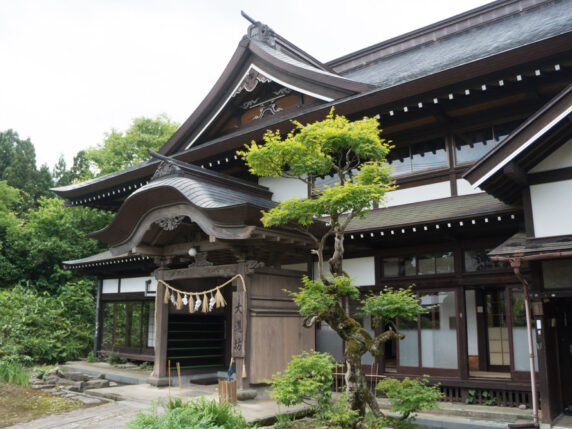Conservation efforts on the Dewa Sanzan
Written by Timothy Bunting
Haguro-san (Mt. Haguro) is synonymous with its cedar forest, so much so that the forest was awarded status as a Japanese Special Natural National Treasure, one of only two such forests in Japan, and three stars on the Michelin Green Guide Japan, meaning it is worth going out of your way to visit. Many of the 500 or so cedars that line the stone stairway of the Dewa Sanzan’s shortest peak were planted in the mid 1700s, not only to stop landslides and risk of slipping down the mountain, but so that future generations could have something to enjoy. And for those of us living in the modern age, it truly is a sight to behold.
Haguro-san's Cedar Forest at Risk

However, if you take a closer look, you might notice that some of the trees are either already rotting, or at risk of doing so. In fact, in 2017, one cedar even fell and landed right on top of one of Haguro-san’s characteristic shrines, crushing it completely. Not only is this dangerous for anyone who walks the stone stairway, it is also a huge shame. While the shrine was able to be repaired, sadly the cedar that fell is not. Thankfully, it was not Haguro-san’s 650-year-old Five Story Pagoda that fell victim. However if no one acted, that would simply be a matter of time.
Efforts to Help the Cedar Forest
So, in 2017, working in conjunction with the Monzenmachi Initiative and Dewa Sanzan Shrine, local company Megurun Inc., whose mission it is to create a happy and sustainable community and family, put together a proposal to help sustain the cedar forest. From autumn 2019, research began into the state of each of the 500 or so cedar trees. Over the course of three days, each of the trees close enough to the stone stairway were examined, and the most dangerous ones were felled in 2020.
Locals were asked their opinion on how they would like the forest to appear. While leaving the forest to regrow by itself would mean in a few decades or so it would be overcome with broadleaf trees, an overwhelming majority of locals wanted to keep the cedar forest as is, or to even increase the number, or density, of cedar trees. This is in order to carry on the same views the ancestors had into the future.
Timothy Bunting
Tim Bunting is a Dewa Sanzan Shrine Yamabushi with over 10 years' experience living beneath the three mystical peaks. He is a self-professed Dewa Sanzan nerd, and is currently working on the Yamabushido project and Dewa Sanzan Monzenmachi Project with Megurun Inc. His roles including assisting in Yamabushi trainings, translating, interpreting, and curating Dewasanzan.com.
Insider information and updates on
The Dewa Sanzan.
Subscribe to the Dewa Sanzan Tribe now.



